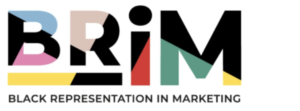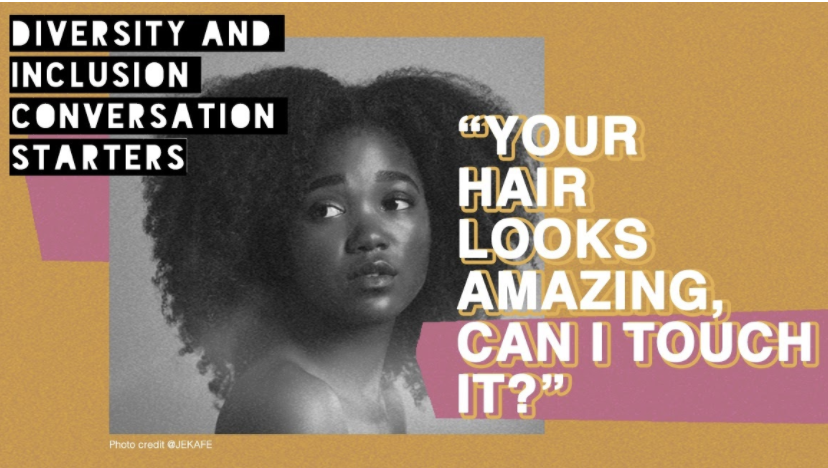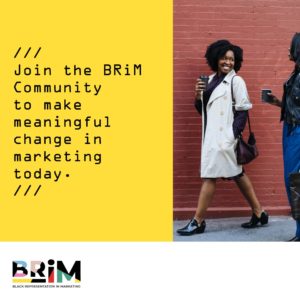Already a member? Sign in below


What is a microaggression?
A micro-aggression, defined as “indirect, subtle, or unintentional discrimination against members of a marginalised group”, are everyday behavioural instances that communicate derogatory or prejudice remarks that come across as culturally insensitive. The most common example of this is “but where are you really from?”, implying that a person, usually non-white, is not ‘British’. Whilst a person may be very proud of their heritage, and no matter how the comment was intended, the way the question is asked suggests that they don’t belong where they are now. This can have a negative impact that, over time and with repetition, can build up and develop into anxiety, frustration and anger.
Where might we come across a microaggression?
Commenting positively on a person’s hairstyle is a natural thing to do, and it’s something we may often do at work for small-talk. Who doesn’t like a compliment? However, for black people, these questions comments may cross the line into being a microaggression, if for example they are poorly worded, or if questions are never-ending, becoming invasive. Combined with the anxiety some black people may experience around their hair not being deemed ‘professional’, this can lead to withdrawal, feeling overly self-conscious, and doing anything and everything they can to avoid drawing attention to their hair.
Microaggressions within the advertising industry
Within the advertising industry and even our agency, most black women we spoke with have experienced comments and questions that, unfortunately, cross the line into being microaggressions. Questions like, “your hair looks nice, can I touch it?”, “did all that grow overnight?” and “is that all your hair?”, or comments such as, “your hair looks so different today”, or “wow, you changed your hair again” all carry a subtext that suggests a range of beliefs about afro hair that makes black people, particularly women, feel uncomfortable and othered. They suggest that the texture is something for a non-white person to experience, that they as a person should feel okay to be touched, that having a weave-in or wearing a wig is unusual, or that being able to change one’s hairstyle regularly isn’t normal.
“People think it’s an appropriate conversation starter with me. I’m here to do a meeting, not to discuss why my hair is so big or why I’m wearing it in a different style.” “I used to feel very anxious whenever I changed my hairstyle about all the questions I would get asked; ‘is it real?’, ‘how long is your real hair?’, ‘why don’t you just do this with your hair?’, ‘my other black friend does this with her hair’, ‘ why isn’t your hair straight?’. The questions were endless, so I used to just stick to one hairstyle and not explore my hair and the different styles I could create.” These experiences are sadly commonplace in a society that generally has very little knowledge of the lived experience and feeling of being black in a predominantly white society. It highlights the importance of learning about black people and their achievements, black culture and experiences, especially that of Black Britons.
What can we do to avoid microaggressions?
Provide leaders and people in positions of power within the company with the training and facilities needed to educate themselves and therefore lead by example. Practice a culture of inclusivity, respect, and appreciation, and make the team understand that microaggressions don’t belong.
Discussing topics like racism, sexism, or ableism can be uncomfortable but they are necessary. It could be a good idea to start by holding informal small-group discussions about the topics and allowing a safe space for people to ask questions without discrimination. Facilitating speakers and workshops within the workplace will also help tackle any uncertainty on these topics with professionals qualified in these areas.
It is important that your workplace understands that this is a process and not something that will happen overnight but that is very important and should be worked at. The effort to put in to facilitate true change will be long so it is important to avoid feeling discouraged when new issues arise. Regular check ins, surveys and building a supportive culture can help keep conversations to keep these challenging topics from being lost in the day to day.

To find out how you can lead by example join the BRiM Community today
Already a member? Sign in below
If your company is already a member, register your email address now to be able to access our exclusive member-only content.
If your company would like to become a member, please visit our Front Foot page for more details.
Enter your email address to receive a link to reset your password
Your password needs to be at least seven characters. Mixing upper and lower case, numbers and symbols like ! " ? $ % ^ & ) will make it stronger.
If your company is already a member, register your account now to be able to access our exclusive member-only content.